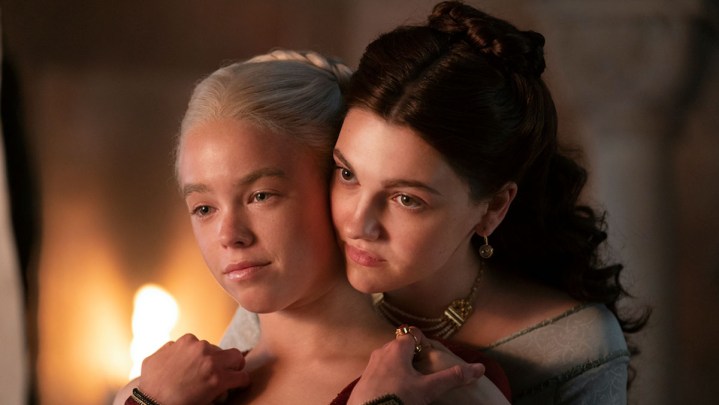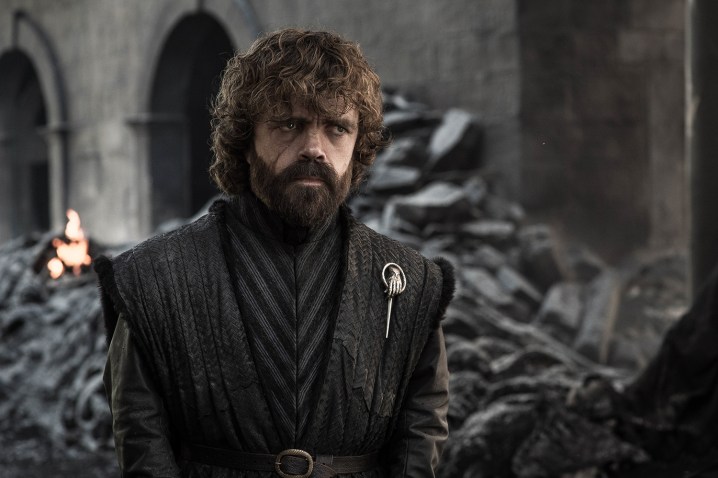Even before Game of Thrones went off the air, there was rampant and wild speculation about which show might emerge that could replace it. Game of Thrones was, according to some, the end of an era where TV fans would all watch the same show and then spend the following week discussing the latest episode and speculating about what was to come. Recently, House of the Dragon has attempted to prove that Game of Thrones can be an heir to itself, but another show that has also entered the fray hopes to become something of a phenomenon.
Lord of the Rings: The Rings of Power has often been described as Amazon’s version of Thrones. The company has invested enormous sums of money into the show, and it’s set in a similar fantasy universe as Thrones, with flying creatures and human actors wearing bad white wigs. George R.R. Martin, the mind behind Game of Thrones, was a huge J.R. Tolkien fan, and wrote his own fantasy series essentially in response to Tolkien’s totemic works. That’s part of the reason why, whatever Rings of Power turns out to be, it has to be more than just a riff on Game of Thrones, even though its source material was created long before anybody sat on the Iron Throne.
Lord of the Rings and Game of Thrones are not the same thing

It can be easy, in flattening out fantasy into a single thing, to believe that Lord of the Rings and Game of Thrones are the same kind of fiction. It would be hard, though, to think of works of fantasy that are more different than these two series. Lord of the Rings essentially invented the genre, and as a result, its tone is usually both sincere and reverent. The story of Lord of the Rings is one about the forces of good beating back the forces of evil, even as it recognizes that the struggle may be an eternal one
By contrast, Game of Thrones is a deeply cynical show that takes the concept of Lord of the Rings and mashes it up with actual European history. Heroes are unjustly beheaded, bad people continue to amass power that they definitely don’t deserve, and the embodiment of evil is able to rise to power in part because of divisions in the world of men. Their milieus may be similar, but the outlooks of these two stories could not be more different, which is why Rings of Power can never hope to be the kind of show that Game of Thrones was.
Thrones was, at the end of the day, a soap opera with expert writing and high production values, but it was also a show about backroom deals and betrayal. Those who wielded power the most mercilessly often came out ahead, and those who behaved with honor usually found themselves dead. Lord of the Rings, meanwhile, spends very little time on politics. The world of Middle-earth is mythic: a place where a race of small creatures has an enormous impact on the shape of the world, in part because no one ever expected them to. It’s a beautiful story in its ultimate simplicity. It doesn’t need the messy politics and in-your-face sexuality of Game of Thrones to thrive.
Rings of Power can’t be Game of Thrones

It’s for that reason that, although it may come to occupy a similar place in our cultural conversation, Rings of Power seems unlikely to be as intriguing as Game of Thrones. There will certainly be some nefarious plotting, and it seems likely that the show’s creative team will have to create characters that are slightly more complicated than those that exist in the movies, but ultimately, Rings of Power likely exists in a universe that’s far more interested in primordial questions about the nature of good and evil and, as a result, spends less time delving into the gray morality of individual characters.
Unless Rings of Power proves to be a wild departure from that tone, it’s going to be, in its way, a much easier show to get your hands around. It may have just as much mythology and lore, but at the end of the day, that lore is biblical and elemental. With Thrones, Martin thrives in the space between myth and reality and loves the ambiguity of a legend that has faded or changed over time. Lord of the Rings is very much not that kind of story. The heroes are good, and they emerge victorious because the prophecy foretold it.
That is not to say that Middle-earth does not have space for ambiguity or for its characters to explore the gray. Often, though, what motivates conflict in Lord of the Rings are disagreements about whether the mission is worth pursuing, or whether the forces of evil can really be overcome. There are very few naked power plays in this world, and those that do exist are typically punished. It’s a much more moral universe, but that doesn’t mean it has to be a less interesting one.
Peter Jackson’s original Lord of the Rings film trilogy leaned into the overwhelming sincerity of Tolkien’s novels. It depicted the occasional villain, but it wasn’t incredibly interested in the psychology of those characters the way that Martin might be. Instead, Tolkien focused on the flawed heroes who were trying their best to make their world better. He was a product of World War II, the rare conflict with clear moral stakes in which the side fighting for justice didn’t have everything figured out, but was nonetheless doing the right thing.
Martin’s world, one of political intrigue and darkness, is certainly an intriguing one. Still, in spite of the hours and hours of handwringing over whether House of the Dragon and Rings of Power can both exist, the shows themselves are likely to be quite different. It’s possible, of course, that Rings of Power will lean into the power plays that made Game of Thrones such an enormous success. What seems more likely, though, is that the show steers away from those kinds of power games and toward a set of heroes confronting a force that is both existential and unrelenting. Not all great stories are the same, even if those stories take place in worlds with dragons.
House of the Dragon is streaming now on HBO Max. The Rings of Power will begin streaming on Prime Video on September 1.



